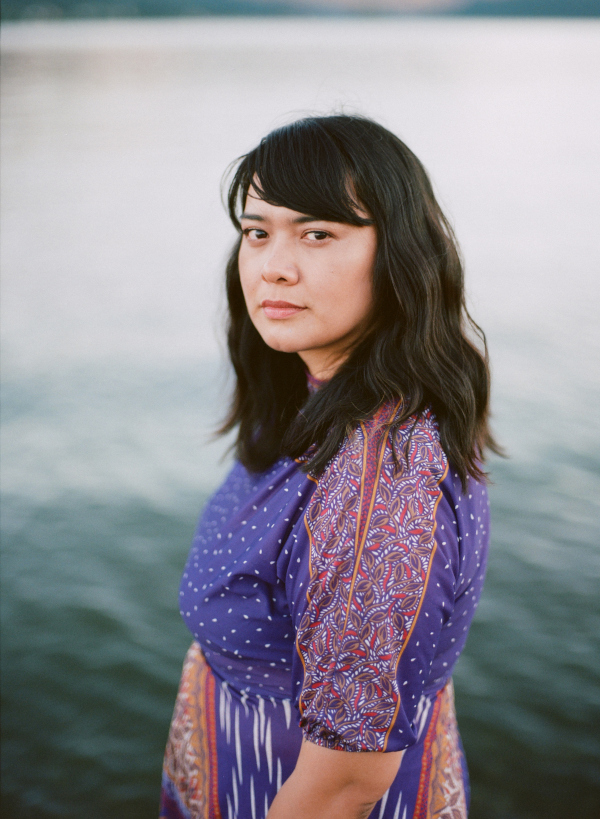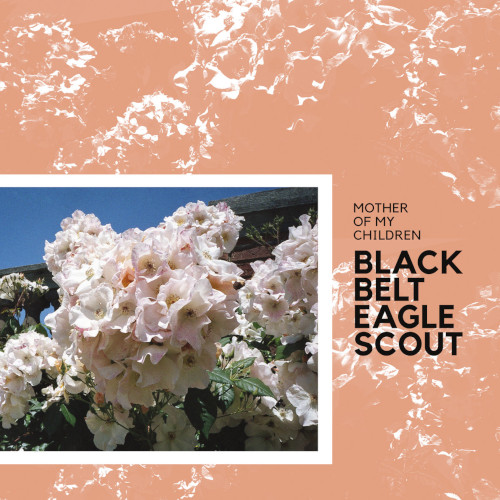Portland singer/songwriter Katherine Paul (aka Black Belt Eagle Scout) talks about mentors and representation
On a typically cold gray fall morning in the Pacific Northwest, Katherine Paul, a singer/songwriter who performs under the name Black Belt Eagle Scout, sits in a typically kitschy-cool cafe in Southeast Portland, trying to wake up and make sense of what happened the night before.
It’s the day after the 2018 midterm elections and the results have given her a lot to think about; she’s cautious in her appraisal.
“There are some cool wins across the nation,” she says, measuring her words out carefully. “I was happy for what happened here in Portland and re-electing Kate Brown as governor. A lot of first-time women of color being elected to certain positions.”
Like most of us, Paul is understandably wary about what these victories could mean for the future of her country, her state, and her hometown. She knows the history of all three too well to declare that everything is going to be okay now. As a queer Native American woman, she’s had too much lived experience to ever feel like the world will course-correct quickly.
She happily acknowledges hopeful signs, such as the election of two Muslim women to the House of Representatives, the first female Native American members of Congress, and a majority female city council in Portland. Add to that all the attention been directed her way over the past year, since the re-release of her debut album Mother Of My Children. All the political wins and the turning of the spotlight away from the straight white male continuum can’t help but feel like salves during this fractious time.
“Having bigger media outlets talk to me,” Paul says, “I appreciate it. I think it’s great, but sometimes I wonder, ‘Are you only talking to me because I’m the one Native artist you know?’ Then I also think about my music and I’m proud of it. I was signed to Saddle Creek Records [the renowned label co-founded by indie superstar Conor Oberst] because they found something in my music and reached out to me.”
Paul isn’t taking all this recognition lightly. She knows how important it is for young women of color and queer kids to see her face and hear her words. Representation matters.
Normally, when I’m sad, I pick up my guitar and I play. I was, like, ‘If I’m playing all these things to make me feel better, I’m going to make it an album because I want this time of my life documented in some way.’
It mattered to her when as a teen, living in the Swinomish Indian community in La Conner, Washington, she fell in love with the underground music scene of the Pacific Northwest. During those formative years she discovered Hole, as well as the riot grrl scene in Olympia that spawned groups such as Bikini Kill and Bratmobile. Paul was inspired to teach herself to play the guitar and venture to shows in nearby Anacortes. She also spent part of her summers attending the Rock ‘n’ Roll Camp for Girls in Portland—a summer camp for budding young musicians. Seeing other young women flexing their skills fed her creative drive, giving her direction and a mantra to inspire her.
“Every day of camp, there’s a lunchtime band that performs, and when I was a camper, The Gossip played,” Paul says, referring to the disco-garage-punk trio led by bold, bluesy vocalist Beth Ditto. “I remember her chanting, ‘Sisterhood is powerful, sisterhood is powerful,’ all throughout the set. That phrase really stuck with me.”
While she doesn’t feature any similar maxims on Mother Of My Children, there’s still plenty of power in Paul’s work. The album is a sorrowful one, born from a period when she suffered heavy emotional blows. There were personal losses, the end of a long-term relationship, and anger and fear as she watched the Standing Rock protests unfold.
“It was a very sad and hard time in my life,” Paul says. “I feel like doing the album has helped me be able to process all this stuff. Normally, when I’m sad, I pick up my guitar and I play. I was, like, ‘If I’m playing all these things to make me feel better, I’m going to make it an album because I want this time of my life documented in some way.’”
Even at its most up-tempo, the music on the record—a fuzzy, low-key take on indie pop—is often soft and forgiving, a cushion on which she places her most troubled thoughts. Paul veers between self-doubt and acceptance on the album’s most agitated tune, “Just Lie Down,” and laments about her lost love on the gently unspooling “Mother of My Children” and the pointedly titled “I Don’t Have You In My Life.” The sound of the closing track “Sam, A Dream” feels like acceptance, an acknowledgment of the good times she had with an unnamed person. It’s a love song and a farewell ode at the same time.
Expressing oneself as she’s done on this album takes a great deal of courage, something Paul has never been short on throughout her life. She grew up in a small community, in a family that didn’t question her pursuits, or make much of a fuss when she came out of the closet.
“At first, I was unsure of what people would think, because our tribe is so small,” Paul says. “It’s like 800 people and half of them live on the reservation. So, having one person be like, ‘Here’s someone who’s different!” I wasn’t ready for that in my mental development as a young girl. But I told my parents. My mom was, I think, afraid of not being able to have a grandchild or something at first. But they both came around and were both accepting.”
Paul has also been blessed with a number of key mentors in her development as an artist. Even beyond those she met and performed with at Rock ‘n’ Roll Camp, it was the artistic community that had cultivated a DIY scene in Anacortes that helped usher along her creative pursuits. In particular, Geneviéve Castrée, the musician and artist. Castrée had a sizable effect on everyone who came into contact with her; her death in 2016, from pancreatic cancer, left a chasm in that community that has yet to be filled.
“In Anacortes they have this annual festival called What The Heck Fest,” Paul remembers, “and I was invited to play when I was in high school because they’re into creating environments for youth to be a part of it. My first teeny-tiny band got invited to play. She came up to me after the show and told me that I inspired her. And I was totally inspired by her as a musician; so to have her come up and tell me that I inspired her was this huge thing. It really impacted me and made me believe that I could continue on with the art that I was doing.”
That moment not only gave Paul the extra push she needed to stick with her efforts as a songwriter, but also left her with the awareness that she wanted to be a similar force in the world. When she moved to Portland 11 years ago, she kept up her involvement with the Rock ‘n’ Roll Camp, first as an instructor in their afterschool program and then as a member of their board of directors.
She’s since had to step down from the board of Rock ’n’ Roll Camp due to her commitment to promoting her album (she has a European tour scheduled), but still remains on their advisory board helping broadcast their message of empowering girls wherever she can.
“The first and foremost thing in my feminism is supporting others and being there for women,” Paul says. “As an indigenous-queer-woman, that’s a lot of minority groups put together in one. I want to be there for other people who are like me.”
Photo credits: all photos by Jason Quigley. Cover of Mother of My Children courtesy of Saddle Creek Records.

.
.
.
.

.
.
If you appreciated this profile of a creative artist in the Pacific Northwest doing amazing things, please consider becoming a supporting reader of Cascadia Magazine. It’s thanks to the generous financial support of our readers that we can continue to publish great writing about issues that matter in the Cascadia bioregion. To make a contribution, please visit our donate page. And if you’re already a supporting reader, thank you!
